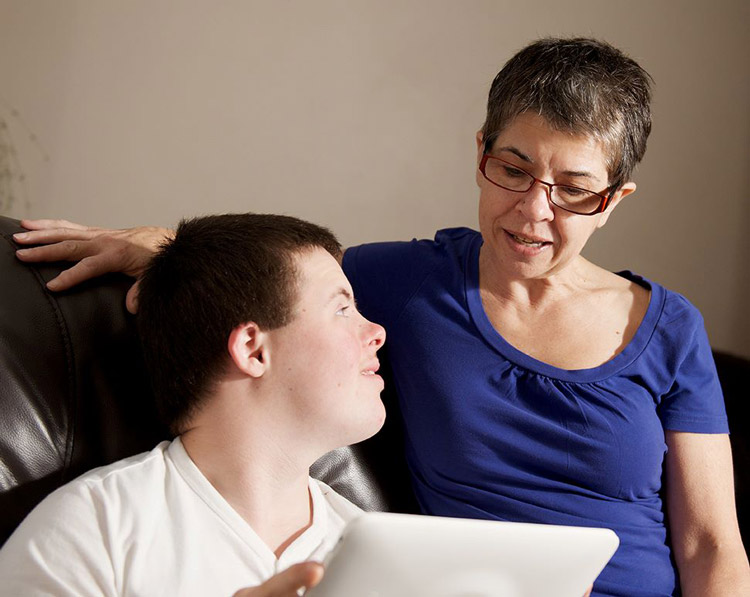When your loved one with a disability starts looking to get into the dating world, not only do they have questions, but you have questions as well. Find some answers here.
When your loved one with a disability starts looking to get into the dating world, not only do they have questions, but you have questions as well. What is your role? How do you handle being a helpful supervisor versus a “snoopervisor”? Amidst these concerns, parents and guardians of people with disabilities should still be the primary educators when it comes to love and relationships. You know your son or daughter best and are the resource they probably feel most comfortable with.
You may have concerns about your loved one being vulnerable or being taken advantage of while dating; the best way to combat these worries is to have open and honest conversations with them not only about themselves as a burgeoning adult but how they should interact with others. This way they will be prepared for any situation and will be able to handle themselves responsibly and safely.
One thing is for certain, your loved one will need open communication and support throughout this time and so will you. Encourage your loved one to speak with you, to lean on you and to ask questions when they are unsure. Here are five tips to guiding your loved one with a disability through the dating world:
- Be open and have conversations. The only way your loved one will realize what is safe, what is acceptable and what is expected in the dating world is if they are taught these lessons. Have frank and sometimes uncomfortable conversations with your loved one about boundaries for themselves and their partner and be willing to answer their questions as long as they are respectful.
- Use teachable moments from your own lives together. When you are interacting in a positive way with your own partner, use this as an example to teach your loved one dating etiquette and appropriate behavior. Whether it be opening a door, paying a check, being polite or asking respectful questions, these can all prepare them for success.
- Acknowledge and explain your loved one’s feelings. Amorous feelings can be varied and confusing. Helping your loved one navigate the differences between sensual and sexual feelings—and appropriate ways to act (or not act) on these feelings—is important. Everyone has a right to their feelings, but understanding them may not come easy. Your loved one may experience crushes, go on dates and find out that some people may be better as a friend. Encourage them to participate in these feelings and explore them in a safe way.
- Do some research on dating tips or hire a dating coach. Just like parents of children without disabilities, the dating world is a hard one to enter. Research safe dating locations, dating apps and other resources to help set up you and your loved one for success. Your loved one’s care provider may provide services to teach about dating.
- Stay positive and supportive. If your loved one is committed to finding a partner but struggling to do so, help them throughout setbacks and hurt feelings. Encourage their progress: each experience helps teach and set up success the next time. Offer praise and support for effort and when things go well, or when they demonstrate things they’ve learned. Dating is hard enough as it is! Be a solid supporter in their corner.
What an exciting time for both you and your loved one! Dating is always an adventure but your loved one will be in such good hands with a caring parent or guardian as a support system. We’ve also crafted a related blog article specifically geared towards those with disabilities, with tips for them to navigate dating. Feel free to share it with your loved one if you’d like.

